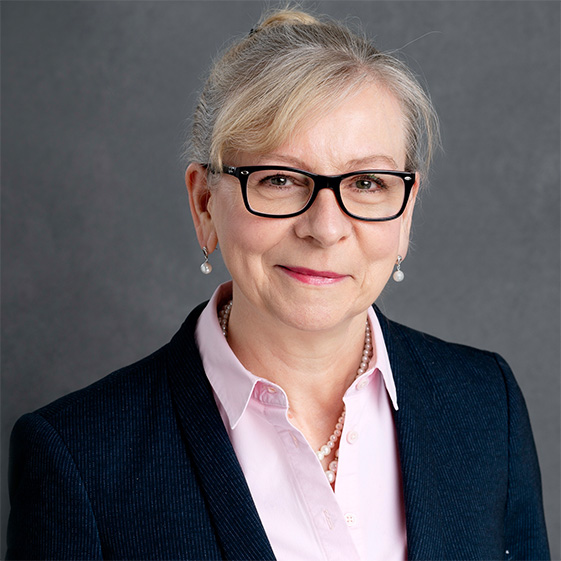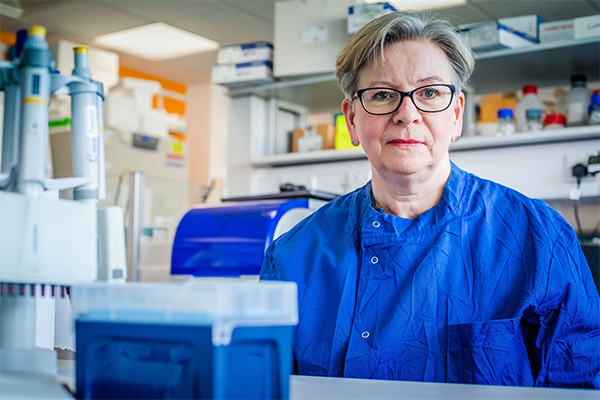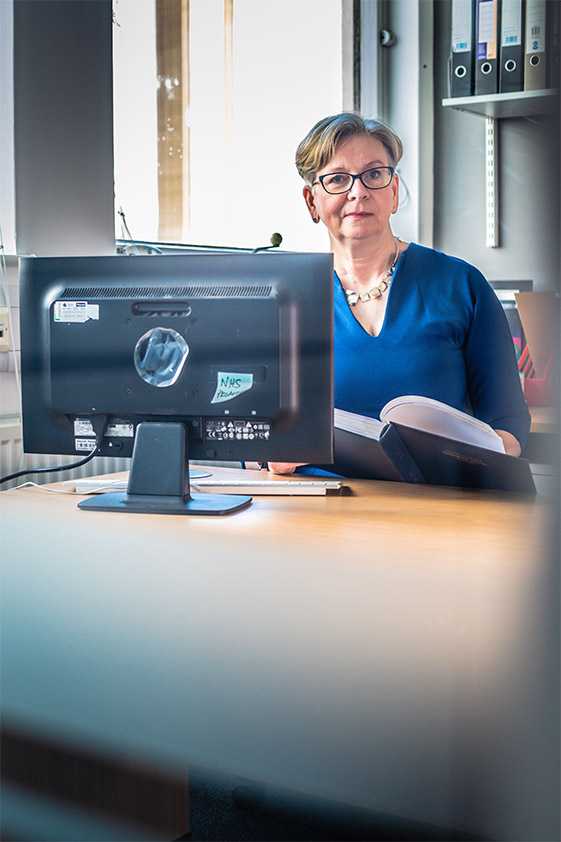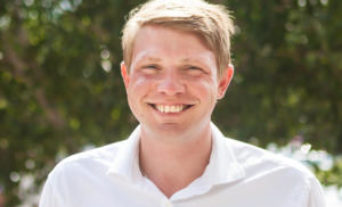A member of the College since 1995, her esteemed career in microbiology was recognised with a CBE awarded in 2015. Since March 2020, she has played a key role in the genomic sequencing of COVID-19. In this article, Professor Peacock outlines her achievements in pathogen research and comments on the challenges that trainee pathologists face.

Background
I took a circuitous route into medicine. After leaving school at 16, I trained as a dental nurse and then a nurse, later specialising in end-of-life care. I obtained GCSEs and A levels at several part-time technical colleges by 23 and then landed a place to study medicine at the University of Southampton. I am forever grateful to the clinical admissions tutor who took a chance on me!
After qualifying as a doctor, I trained in postgraduate medicine in Southampton, London, Brighton and Oxford, before specialising in clinical microbiology and virology in Oxford. A Wellcome Trust Research Training Fellowship in microbiology allowed me to explore interactions between Staphylococcus aureus and human endothelial cells, a project based in Oxford (with Dr Tony Berendt) and Trinity College Dublin (with Professor Tim Foster). Around that period, I juggled my time to study for a BA in History with the Open University.
A Wellcome Trust Career Development Fellowship supported a move from Oxford to the Mahidol–Oxford Tropical Medicine Research Unit (MORU) in Bangkok, Thailand, where I became head of their microbiology research programme under the leadership of Professors Nick White and Nick Day. I returned to the UK after seven years in Thailand. A chair position in clinical microbiology at the University of Cambridge and an honorary faculty position at the Wellcome Sanger Institute provided the environment to develop a research group to explore the utility of pathogen sequencing in clinical and public health microbiology. This was supported beyond measure by Professors Julian Parkhill and Gordon Dougan.
A period as Director of the Bloomsbury Research Institute, London School of Hygiene & Tropical Medicine and University College London was followed by a return to Cambridge to a position as chair in public health and microbiology. After this, I took on a 24-month secondment to Public Health England, first as director of the National Infection Service and then, from April 2020, as Director of the COVID-19 Genomics UK Consortium (COG-UK). Now back in Cambridge and focused on COG-UK and pathogen genomics, I am thinking about what’s next for pathogen genomics, as well as planning the contents of a book.
It is the people I have met along the way that have brought me great joy, only some of whom are mentioned by name here.
A growing interest in wider issues relating to good governance and management led me to take a Financial Times diploma to gain the knowledge to become a Non-Executive Director (NED). This supported my appointment as a NED on the Board of Cambridge University Hospitals NHS Foundation Trust and chair of the Quality Committee, a part-time role that I have balanced with other responsibilities. Already six years in post, this has been one of the most rewarding roles of my career.
Key achievements
Sequencing COVID-19 variants
In March 2020, I directed the initiation and development of the COVID-19 Genomics UK Consortium (COG-UK). I started by convening a scientific group, which developed bold plans for a nationwide sequencing network, supported by £14.5 million from the UK Government’s COVID-19 fighting fund, administered by the MRC. This was a major team effort and the work of hundreds of people, but we could not have got the consortium operations up and running without Dr Catherine Ludden, Dr Ewan Harrison, Dr Katerina Galai and Beth Blane.
COG-UK consists of numerous academic institutions, the Wellcome Sanger Institute, and the four public health agencies of the UK, which became networked with over a hundred NHS diagnostic and high-throughput COVID-19 testing, or lighthouse, labs. This capability was required to generate the data that allowed the detection of new variants that alter vaccine efficacy, disease severity and/or transmissibility, and has been critically important for public health interventions and vaccine roll-out. By September 2021, more than a million UK SARS-CoV-2 genomes had been generated and used in the pandemic response, as well as being released into global open access databases. CLIMB (Cloud Infrastructure for Big Data Microbial Bioinformatics) has been central to our success. The data has been used to detect and track variants of concern, including Alpha and Delta. COG-UK also provides in-depth information on variants using resources such as the open access Mutation Explorer.
We handed over all routine sequencing of SARS-CoV-2 to the public health agencies in September 2021, in support of a sustainable long-term plan for large-scale public health pathogen sequencing in the UK. The current focus of COG-UK has pivoted to global training in SARS-CoV-2 sequencing, data linkage with other major datasets, and research supported by the availability of viral and host genomes and detailed health informatics data. Health Data Research UK is a key partner as we work to move genomic and other data into Trusted Research Environments where they can be accessed in the longer term.

Pathogen research
Prior to COG-UK, I worked for a decade to generate evidence for the importance and impact of pathogen sequencing. My research group was among the first to use benchtop sequencers to demonstrate the power of retrospective sequencing to confirm or refute MRSA outbreaks. We then provided evidence for near real-time sequencing to detect and control outbreaks from bacteria such as MRSA. This included the development of the ‘sequence first’ principle to detect outbreaks before they are clinically apparent. My group also demonstrated how sequencing was primed to replace many conventional microbiological tests being performed in reference microbiology laboratories, including the prediction of drug resistance in pathogens. We also used sequencing to detect the source and spread of numerous antibiotic-resistant bacteria using a One Health approach, finding that, in these UK studies, antibiotic administration in humans is the largest likely driver of antibiotic resistance/resistant infection in humans. Many people were involved in this work, but particular thanks go to Drs Kathy Raven, Catherine Ludden, Francesc Coll, Theo Gouliouris, Michelle Toleman and Estée Török.
In Thailand, my focus was on melioidosis (an important tropical disease with a high mortality caused by the environmental bacterium, Burkholderia pseudomallei), leptospirosis and rickettsial infections. The clinical melioidosis trials we completed created the foundations for international treatment guidelines, while working groups led to guidelines on treatment following accidental laboratory or deliberate exposure to B. pseudomallei. We used pathogen genomics to define the global spread of B. pseudomallei and used molecular methods to explore the genetics of the organism in soil and environmental water. I am particularly proud that, over this period of seven years in SE Asia, I trained 12 PhD students – many of whom have gone on to become senior lecturers and professors. I am also proud of the work that we did to increase microbiology capacity at a hospital for children in Cambodia. None of this would have been possible without Vanaporn Wuthiekanun and Professors Direk Limmathurotsakul and Narisara Chantratita.
Academic achievements
Over the course of my academic career, I have been fortunate to have been involved in numerous funding panels. This includes numerous MRC panels (including five years on the Infection and Immunity Board), and funding or other panels of the US National Institutes of Health, Academy of Medical Sciences, Royal Society, the National Institute for Health and Clinical Excellence and the National Institute for Health Research.
I currently chair the Sir Jules Thorn Charitable Trust Advisory Committee. I have managed over £50 million in funding as PI or co-PI and have published more than 500 peer-reviewed papers and book chapters. I am a Fellow of the Academy of Medical Sciences, a Fellow of the American Academy of Microbiology and an elected Member of EMBO. In 2015, I received a CBE for services to medical microbiology and, in 2018, I won the Unilever Colworth Prize for outstanding contribution to translational microbiology.
Looking back, none of this would have been possible without the incredible people I have had the good fortune to work with. It is the people I have met along the way that have brought me great joy, only some of whom are mentioned by name here. My husband and three children have been my touchstone and have kept me grounded and optimistic, no matter what.

Key challenges for pathology
When I first started my training in clinical microbiology and virology, there was an expectation that I would know enough bench microbiology to run a bench, a specific area that processes certain samples, such as blood cultures or urine samples. As a trainee and a consultant, it was routine practice to work in a highly integrated way with colleagues who undertook the microbiology and ran the laboratory. With the number of clinical microbiology labs reducing in recent years and the development of hubs that serve numerous hospitals, clinical microbiology trainees feel that they lack the opportunity and experience in laboratory practice. This disconnect is also felt around the FRCPath Part 2 exam, where lack of exposure can lead to lack of confidence in the practical section. Trainees may also lack exposure to how a lab is managed, including when problems arise and troubleshooting is needed. The same lack of exposure may also occur in infection, prevention and control so that newly appointed consultants with responsibility in this area can feel unprepared. Some trainees also consider that they lack exposure of travel medicine, particularly now that many travel clinics are privatised.
In terms of fixing the problem, I can think of two solutions (which are probably linked). The first would be to mandate lab attendance, bench experience, attendance to IPC meetings, and travel clinics (these are all required skills for CCT). The second would be to not view trainee work as predominantly one of service provision, conducting routine work such as authorisation and being sat next to a phone answering micro-queries. This is clearly an important part of training but not sufficient alone. Being present on the wards through consult teams and specialist rounds, as well as seeing and examining patients as part of multidisciplinary teams, provides the best deal for patients and for trainees.
Work–life balance
It’s essential to refine the skill of saying 'no'. This will help you to focus on those things that you really need or want to do, avoid overload and allow you to take much needed time out for family, friends, hobbies and activities. This does not have to be a negative; suggesting someone who could benefit from the opportunity can also help those people around you.




